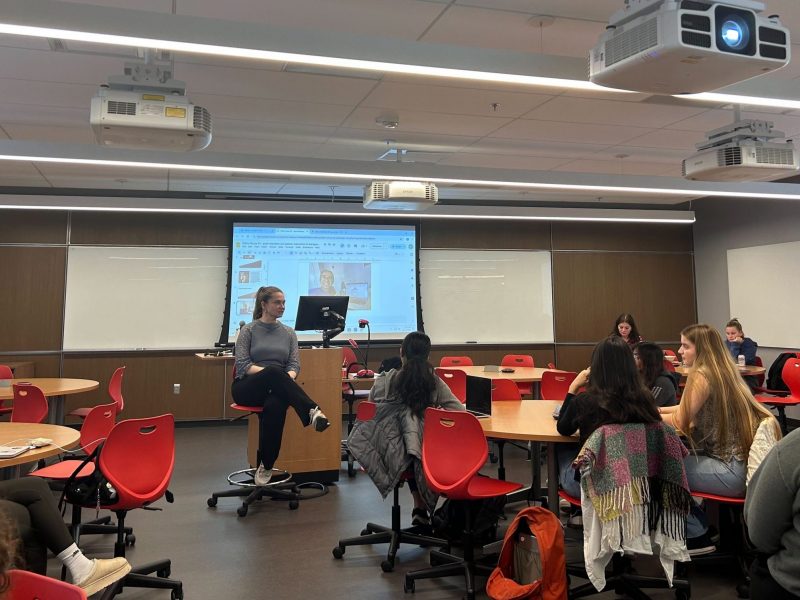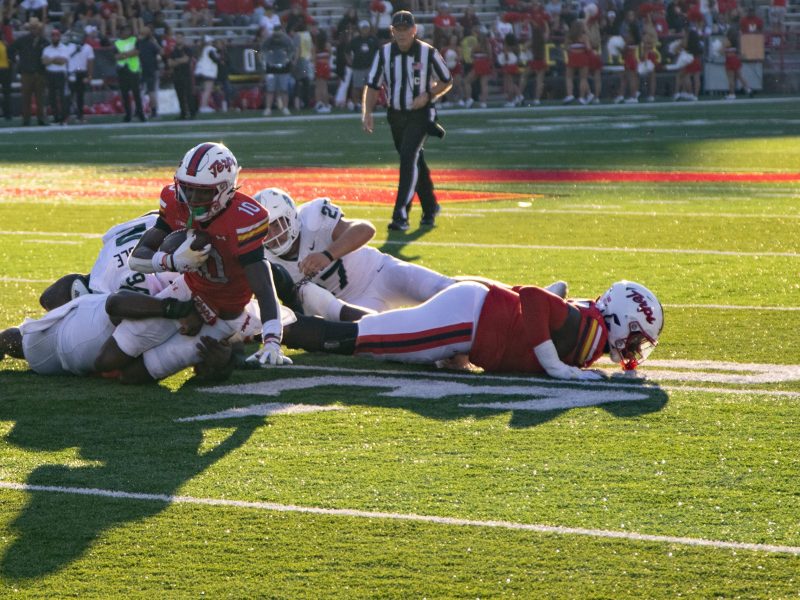
Junior accounting and government and politics major
U.S. Navy Pacific World War II historian: a job that is far from glorious, and nowhere near exciting. In fact, most of you will probably fall asleep before you finish reading the job description. Yet to me, it would be a dream job.
It would be a job that would contrast majestic aircraft carriers and beautiful Pacific Islands with mountains of historical records and endless pages of writing. A career that would require research and writing but also the ability to strategize and appreciate. I would have to simultaneously record history while also explaining why events happened the way they did.
I could follow the path of hundreds of thousands of Americans across the Pacific as they liberated populations and took small steps toward ending the Pacific War. I could identify why a handful of Americans stopped the Japanese at the Battle of Midway. I could recount the stories of submariners below the surface and airmen thousands of feet in the air. I could explain how American industrial might created the largest naval fleet. I could preserve the sacrifices of soldiers, sailors, airmen, and Marines as they fought for one another, their country and their loved ones back home.
To most of you, my dream career seems focused on something so specific, so focused, and even irrelevant. It definitely lacks the popular appeal or heroic qualities of so many other fields. Many fields accomplish more good for the world and others than a naval historian of one nation in one specific campaign. Yet this career too has value.
History is often ignored by 11th-grade students, business executives, generals, politicians and just about everyone else. But is 70-year-old naval history relevant today? We do not seem to have much use for fleet maneuvers, aerial dogfights or island-hopping in today’s world. How will battles fought over coral atolls a few square miles in size affect my real-life career in accounting? The truth is, it probably won’t. But that’s not why we remember the Battle of the Philippine Sea.
We remember our history to honor the sacrifices of those before us, the sacrifices made for people not even born. We remember this history to understand our own current events and history, so our leaders understand our relationships with certain nations. We remember this history as a society to learn from the lessons of the past, in this case military and political lessons.
Preserving this history would be my dream job. To be sure, it would be a small contribution to society, and I would enjoy every minute of it. Of course, this does not mean I don’t like my current career path and aspirations. I have no intention of giving up my passion for naval history, though I won’t be making it my career. But that doesn’t mean I can’t dream.
Matt Dragonette is a junior accounting and government and politics major. He can be reached at mdragonettedbk@gmail.com.



